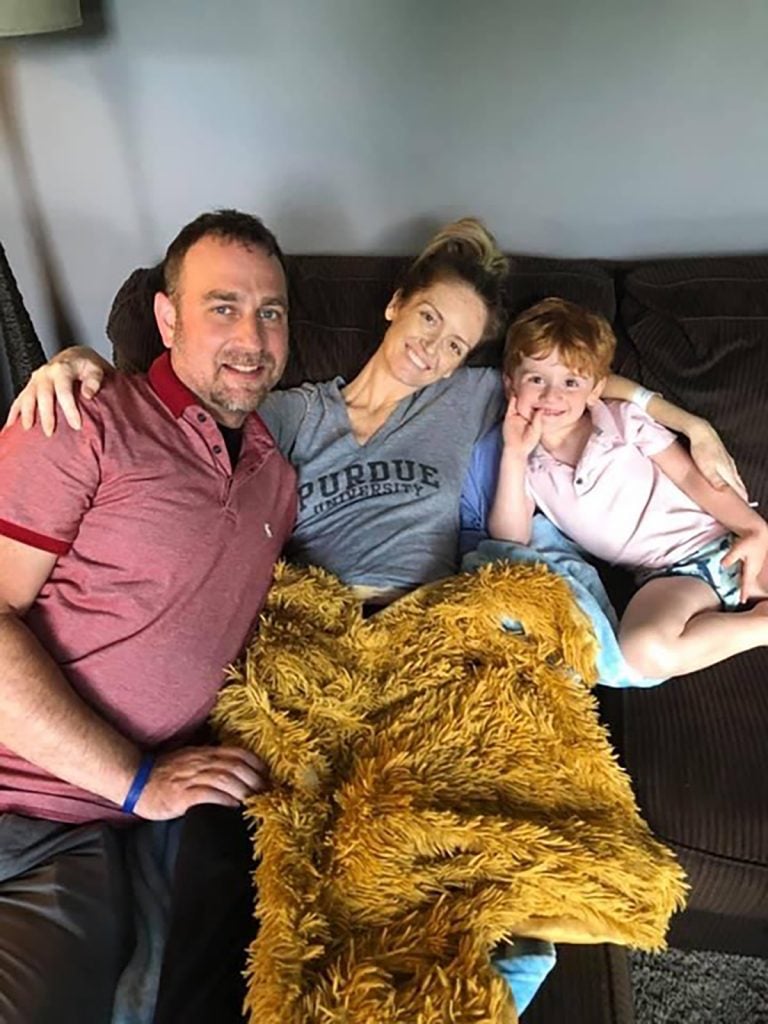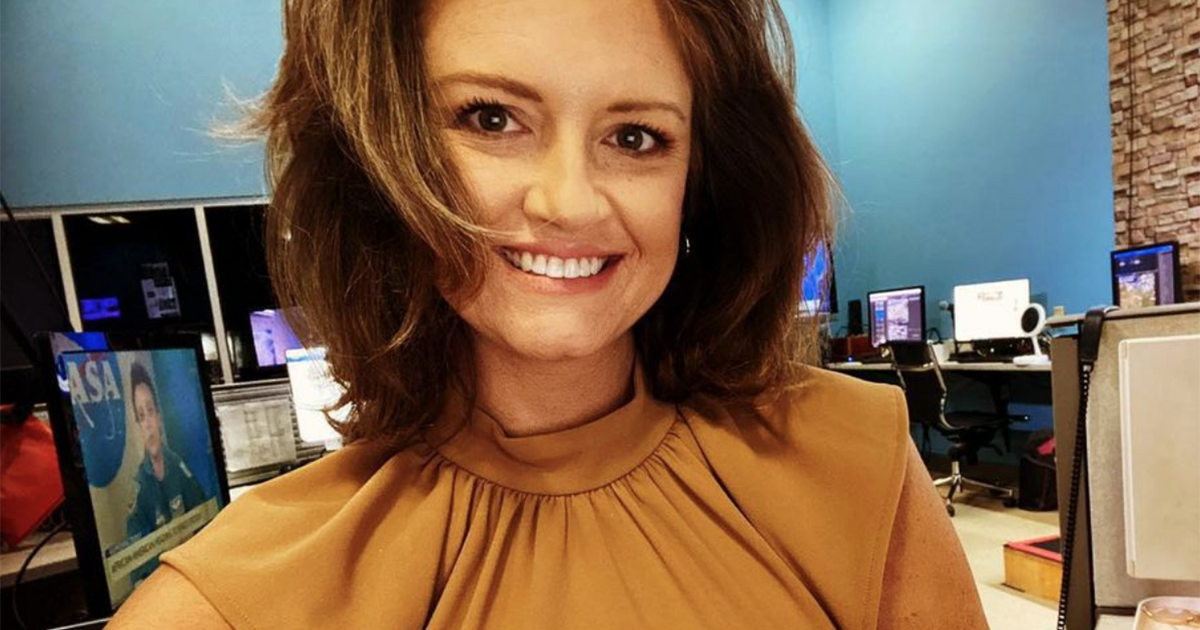Spending Time With Family in Remission
- TV news anchor and colon cancer survivor Lindy Thackston recently shared a sweet moment with her son, which was posted to Instagram, highlighting the importance of spending time with family when in remission.
- Lindy was diagnosed with stage 3 colorectal cancer in May 2020, but later, when a spot was found on her lung, it was determined her cancer was actually stage 4. She’s now in remission.
- Many people find that spending time with loved ones, such as their children, spouse or other family members, is helpful during and after a cancer battle, like Lindy spending time with her son, Lachlan.
"I just told Lachlan … he should come in and watch the morning show sometime and he said, 'Are you going to be accurate?'" Lindy, 41, said on her Instagram story, which she posted Thursday afternoon.
Read MoreBeloved Indianapolis-based news anchor and colon cancer survivor Lindy Thackston, 41, shares a sweet Instagram story with her son. @SurvivorNetTeam
sydney schaefer (@sydneydschaefer) May 6, 2022
Watch here pic.twitter.com/s0cuFTrNHm
Spending Time With Family in Remission
Many people find that spending time with loved ones, such as their children, spouse or other family members, is helpful during and after a cancer battle, like Lindy Thackston spending time with her son, Lachlan.
During a pervious interview with SurvivorNet, ovarian cancer survivor Beverly Reeves stressed how critical it is to have a supportive, loving community guiding you during your cancer battle. And to continue that support system even after you’ve entered remission.
'Faith, Family, and Friends' Helped Beverly Reeves Get Through Ovarian Cancer Treatment
Beverly told SurvivorNet, "If I had one piece of advice for someone who had just been diagnosed with ovarian cancer, it would be to get a strong support group together. Get your close friends. If you're connected to a faith community, get your faith community."
"Get your family," she continued. "Let them know what's going on and let them help you. And sometimes that's the most difficult thing to do, but just know that they are there. If they love you, they're there to help you. And don't be embarrassed …"
"… Because this is a cancer that not a lot of people want to talk about,” she added. “But it's real and we need to talk about it, and we do need that help. So, talk to your family and your friends and your faith community, and get that network together so they can support you and be there for you."
Lindy Thackston's Cancer Battle
Lindy Thackston, a beloved television news anchor for FOX59 News in Indianapolis, was diagnosed with stage 3 colorectal cancer in May 2020. In the spring of 2021, she finally finished all 10 rounds of chemotherapy to fight off her cancer.
But in September of that year, she shared that doctors found a spot on her lung during an unrelated hospital visit. She told her thousands of Instagram followers that the lung spot prompted a biopsy, which revealed the cancer had spread to her lung her cancer had reached stage 4.
In an episode of her podcast, Life With Lindy, posted that same month, she further explained that her doctors think the spot on her lung had been there from the very beginning when she was diagnosed with stage 3 colorectal cancer.
Management of Metastatic Colon Cancer
Lindy disclosed to SurvivorNet during a previous interview that this discovery also meant she was actually stage 4 when she was diagnosed in May 2020, considering the cancer had spread beyond its origin organ. But the spot was small; it never changed or did anything the entire time she battled colorectal cancer, she said.
"That's actually good news because it means a new spot didn't pop up," she told SurvivorNet.
Dr. Heather Yeo, a surgical oncologist and colorectal surgeon at New York-Presbyterian/Weill Cornell Medical Center, previously told SurvivorNet that when colon cancer spreads outside the colon, "most commonly spreads to the lung and to the liver." In Lindy's case, it had spread to her lung.
Lindy ended up having a lobectomy procedure (surgery where an entire lobe of the lung is removed) to remove half of her left lung.
"Then the question was, 'OK, do I do a round of chemo after that, or not?'" Lindy said.
She consulted with her oncologist at St. Vincent Hospital (in Indianapolis) about what her next steps should be chemotherapy, or not. She also sought second opinions on what to do at Indiana University Health and the Mayo Clinic.

"I had IU and Mayo (Clinic) telling me that they would not do chemo and that they would just continue to constantly monitor me," she told SurvivorNet. "My oncologist, who I've been going to for the whole time, was leaning toward chemo. And I obviously didn't want to do it. … We ultimately decided not to do it."
"It was just a personal decision," she added, "and so (at that point), it was time to take another Signatera test again."
"Hopefully it's negative again," she added. "If it's positive, then I'm gonna have to figure out where the cancer is and start over."
Luckily for Lindy, that test result came back negative, so she doesn't have to start from square one again!
She took another Signatera in early April her third and she continues to return negative results, meaning she’s cancer-free! But her doctors will continue to monitor her remission progress with PET scans every three months.
Contributing: Anne McCarthy
Learn more about SurvivorNet's rigorous medical review process.


